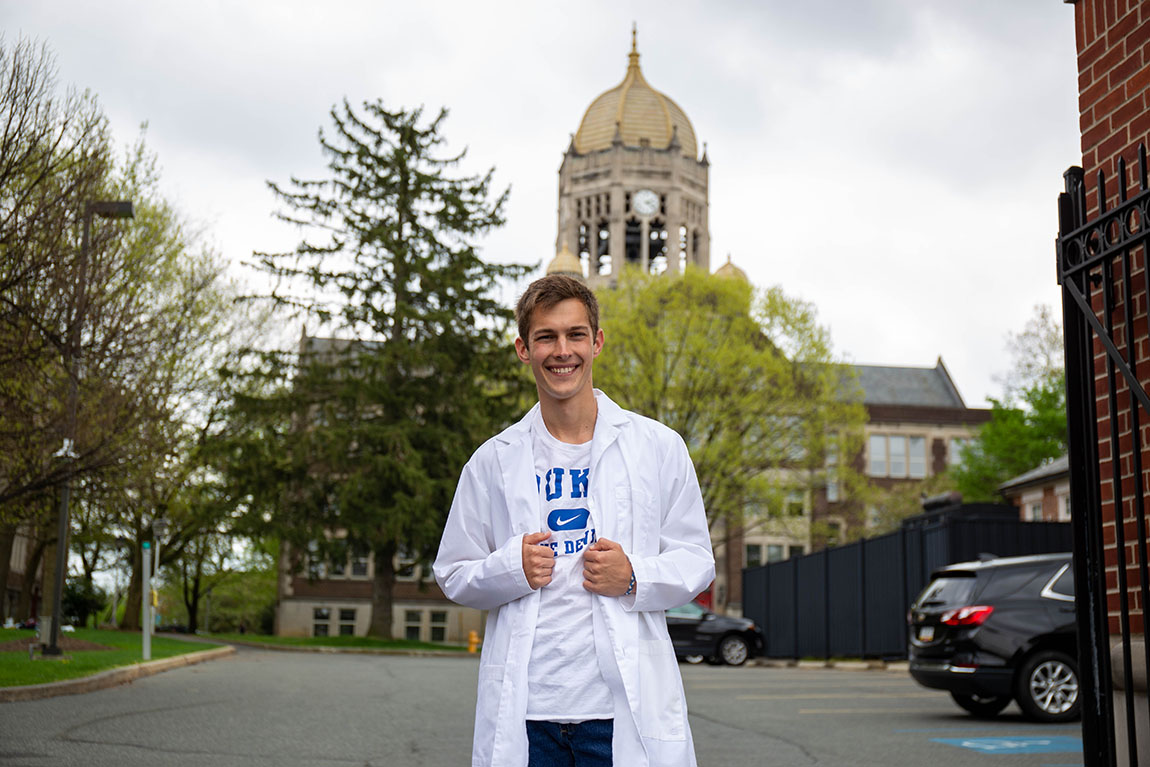Undergraduate Research Led Conner Soderstedt ’23 to Pursue a Ph.D. in Chemistry
Soderstedt, who will attend Duke University, is interested in the role that chemistry can play in the future of renewable energy.By: Meghan Kita Friday, August 4, 2023 08:01 AM
 Conner Soderstedt ’23
Conner Soderstedt ’23As a junior, Conner Soderstedt ’23, a chemistry major and mathematics minor, decided to act on the guidance he kept hearing from faculty: to experience the lab outside the confines of a class.
“I was talking to the various chemistry professors. They were pushing me to do research, to try it out and see if I liked it, to try to determine a career path,” says Soderstedt, who was also a student-athlete on the track and cross country teams. “At Muhlenberg, you have the opportunity to do research as an undergrad, which you don’t get at a lot of places. I wanted to explore that path to see if I liked it, and I did.”
He began by joining the lab of his advisor, Associate Professor of Chemistry Justin Sparks, during the spring of his junior year: “The biggest thing it taught me is to expect failure,” Soderstedt says. “You get far more failures in research than you do any successes … It’s the first taste I’ve ever had of that. Teaching labs are pretty straightforward and they work all the time.”
He used the skills and experience he built in Sparks’s lab to conduct summer research with former Lecturer of Chemistry Jonathan Gooch. There, he was exploring a more environmentally friendly way to produce silver nanoparticles, a material used to sterilize other products.
“I’ve always been interested in the environment. I took Environmental Philosophy during my time at Muhlenberg, and what I gathered from my time in chemistry and philosophy and religion classes is that renewable energy is one of the most pressing topics of all environmental issues, one that chemistry can play a significant role in improving,” Soderstedt says. “When I was looking into labs for graduate school, I tried to pick out labs with that focus.”
He applied to 11 graduate schools and ultimately chose Duke University because it has multiple groups working in renewable energy. During the application process, he collaborated with the Career Center and Writing Center to help with the organization of his resume and applications and with chemistry faculty to help with the content.
“I wrote about my research experiences and tied in my liberal arts education, including the various classes I took that sparked my interest in renewable energy and environmental issues as a whole,” he says. “It was helpful to be offered all those classes I could take to strengthen my application and grow my interest in the field.”
